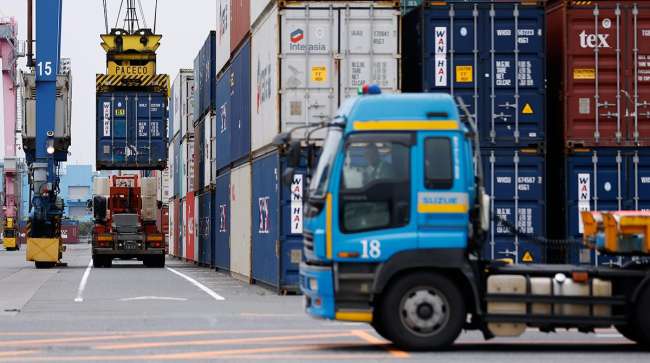Введение в изменения тарифов
Недавние сообщения от правительства США указывают на сдвиг в импортных пошлинах, который может иметь серьезные последствия для динамики мировой торговли. Предлагаются тарифы до 40% на товары из определенных стран, что демонстрирует беспрецедентный подход к международным торговым отношениям.
Детали предлагаемых тарифов
Письма с объявлением об этих предлагаемых тарифах содержали угрозы Обязанности 25% на импорт из ключевых стран, таких как Япония и Южная Корея, с 1 августа. Ожидается, что тарифы аналогичных ставок будут применяться также к Малайзии и Казахстану, в то время как Южная Африка сталкивается с 30% долг и некоторые страны Юго-Восточной Азии, такие как Лаос и Мьянма, столкнулись с ошеломляющим 40% тариф. Это кардинальное изменение является частью более широкой стратегии США по изменению своих торговых соглашений в основном в одностороннем порядке.
- Затронутые страны:
- Япония: Тариф 25%
- Южная Корея: Тариф 25%
- Малайзия: Тариф 25%
- Казахстан: Тариф 25%
- Южная Африка: Тариф 30%
- Лаос: Тариф 40%
- Мьянма: Тариф 40%
Неопределенность в торговле
Непредсказуемость, вызванная этими изменениями тарифов, бросает тень на рыночные стратегии и планирование логистики. Предприятия, зависящие от международных цепочек поставок, готовятся к осложнениям по мере приближения сроков принятия решений. Эти надвигающиеся пошлины не только усложняют структуру ценообразования, но и вносят потенциальные задержки в отгрузке и получении товаров, а с такой реальностью никто не хочет сталкиваться.
Реакция рынка
После объявления рынки стали свидетелями колебаний. Индекс S\&P 500 упал примерно на 1.1%, в то время как экономические показатели отражали растущую неопределенность среди инвесторов. В частности, валюты пострадавших стран продемонстрировали снижение, что повлияло на глобальную логистическую сеть, которая тесно зависит от стабильности валют для ценообразования и транзакций.
Роль логистики в торговле
Тарифы, способствующие волатильности рынка, создают сложный ландшафт для сектора логистики. Поскольку администрация США стремится пересмотреть торговые соглашения и оказать экономическое давление, логистическим предприятиям приходится ориентироваться в меняющихся нормативных условиях. Это может означать переоценку маршрутов, пересмотр контрактов с перевозчиками или даже пересмотр стратегий поиска поставщиков.
Потенциальное влияние на стратегии логистики
Логистика сейчас как никогда является основой для предприятий, стремящихся поддерживать эффективность, сталкиваясь с новыми барьерами. Вот несколько корректировок, которые компании могут рассмотреть:
- Диверсификация цепочек поставок: компании могут искать источники поставок в регионах, которые в настоящее время не сталкиваются с повышением тарифов.
- Переоценка видов транспорта: Изучение различных вариантов транспортировки может свести к минимуму дополнительные затраты, связанные с тарифами.
- Совершенствование управления запасами: компании могут хранить более высокие уровни запасов по более низким тарифным ставкам, разрабатывая планы по смягчению любых будущих повышений.
Переговоры и будущие соглашения
В разгар хаоса оказывается, что возможности для переговоров о выгодных соглашениях с торговыми партнерами сохраняются. Если такие страны, как Япония и Южная Корея, согласятся существовать в рамках США, то существует потенциал для тарифных исключений, особенно для компаний, которые инвестируют в производственные мощности в США. Это предлагает спасательный круг для фирм, стремящихся избежать чрезмерных издержек и оптимизировать логистику.
Кроме того, возможность краткосрочных отсрочек или переговоров, отражающих сложную глобальную сеть логистики, может обеспечить некоторую стабильность. Аналитики отмечают, что, хотя тарифы усиливают непосредственную неопределенность, они также стимулируют дискуссии, направленные на заключение будущих торговых соглашений, которые могут быть более взаимовыгодными.
Заключение
В мире, где торговая динамика быстро меняется, влияние тарифов на логистику невозможно переоценить. Изменения в тарифах требуют, чтобы компании оставались гибкими и оперативными. Растущая стоимость винтиков в международной логистической машине, таких как тарифы и стоимость доставки, подчеркивает необходимость инновационных логистических решений. Сервисы, такие как GetTransport.com, предлагают надежные решения для грузоперевозок, облегчая предприятиям адаптацию к вновь обретенным сложностям, уделяя при этом приоритетное внимание доступности и эффективности.
Хотя предлагаемые тарифы рисуют сложную картину для международной торговли, организации могут найти способы преодолеть эти нестабильные воды. GetTransport.com не только подчеркивает важность подготовки в нынешнем экономическом климате, но и готов поддержать логистические потребности с помощью гибких и экономически эффективных вариантов транспортировки. Это гарантирует, что перемещение товаров по всему миру остается осуществимым, несмотря на встречные ветры, вызванные изменениями тарифов. Перспектива маневрирования в этих изменениях является сложной, но такие ресурсы, как GetTransport.com, предлагают пути, которые могут направить логистику к эффективным результатам. Будь то перевозка крупногабаритных грузов или отправка посылок, сотрудничество с такой платформой, как GetTransport.com, идеально согласуется с навигацией по логистике сейчас и в будущем. Забронируйте поездку с GetTransport.com.

 Анализ влияния изменения тарифов на глобальную торговлю и логистику">
Анализ влияния изменения тарифов на глобальную торговлю и логистику">